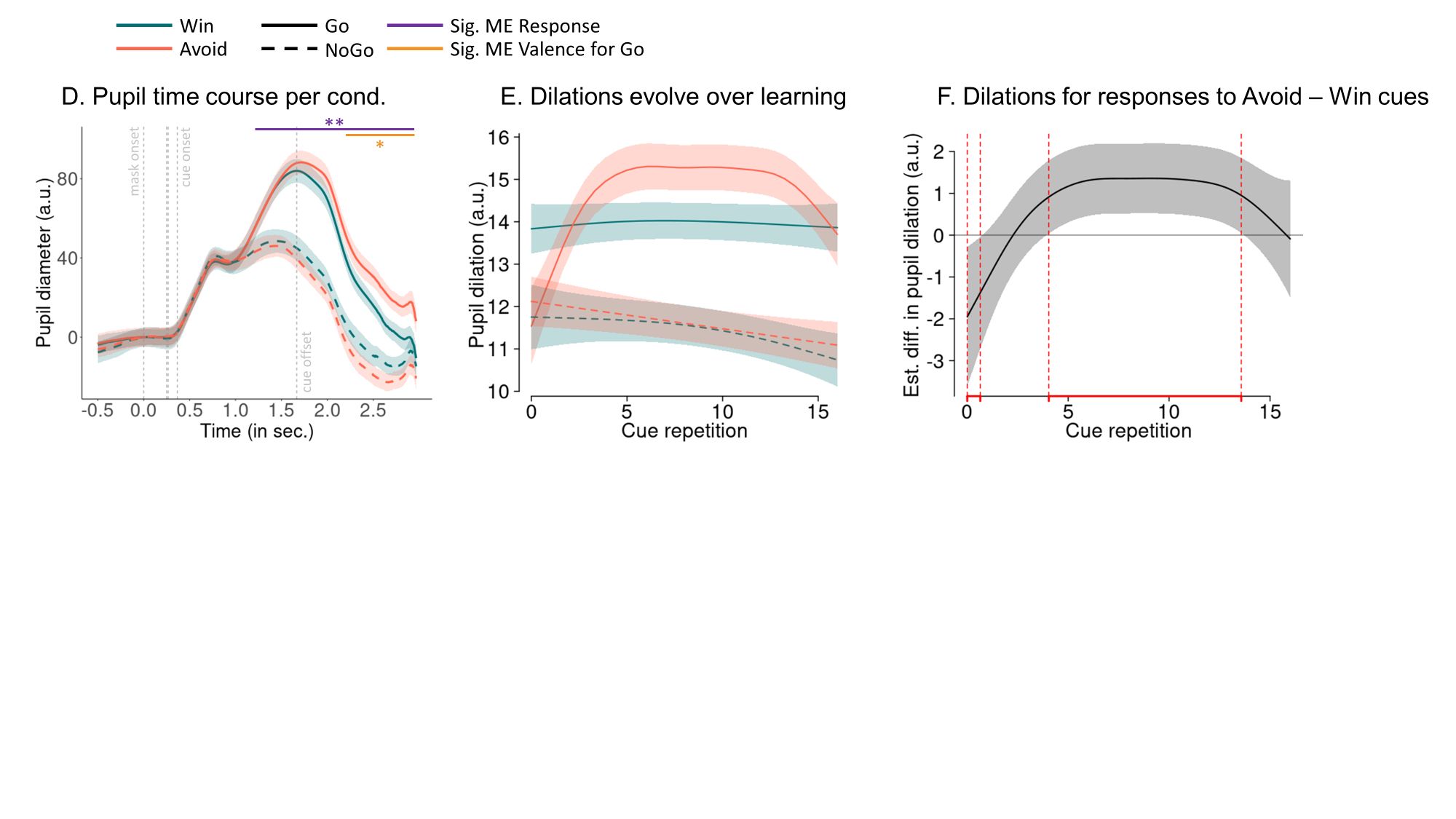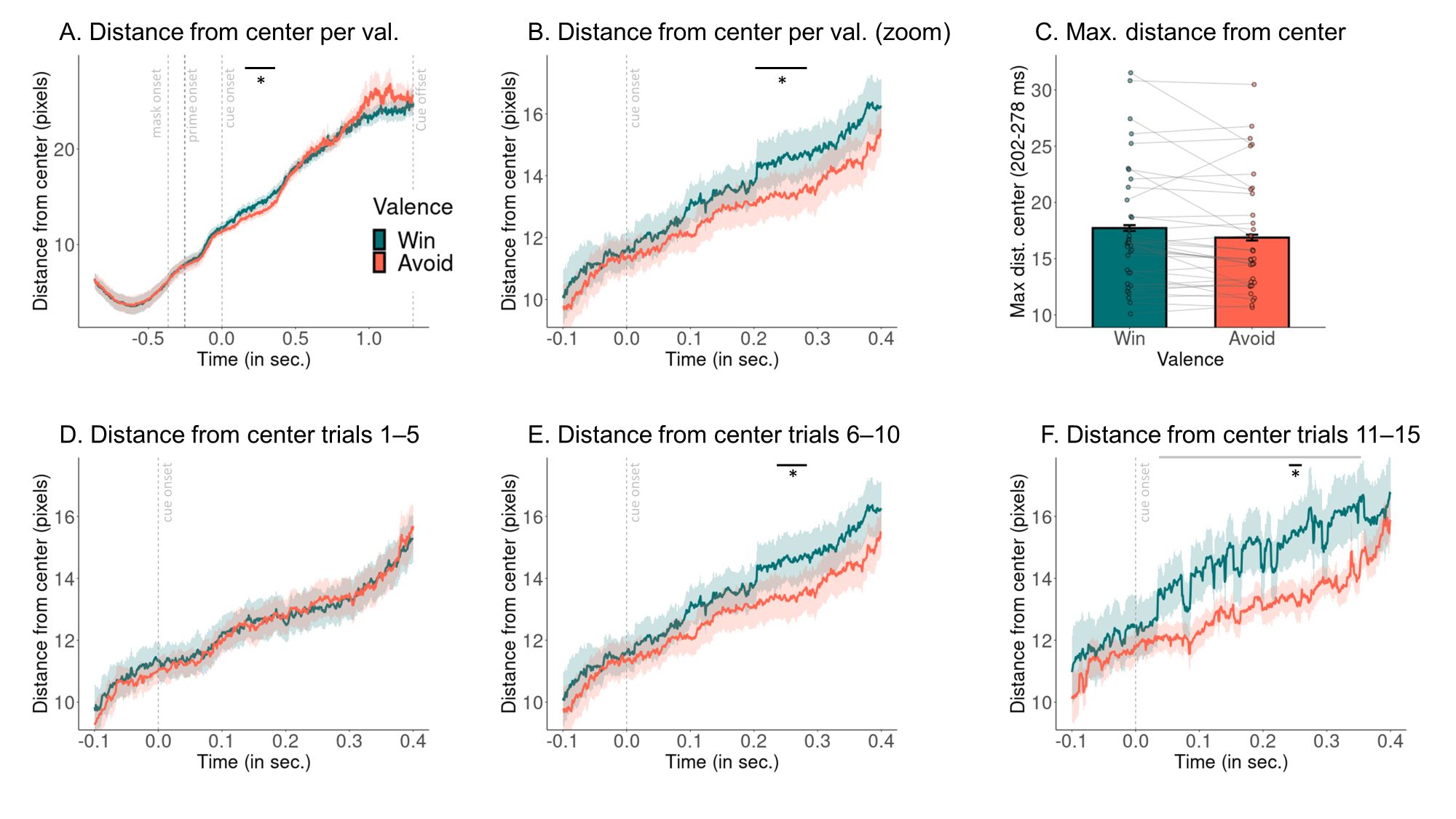5/8 Second finding: Pupil dilation dilates more for Go than NoGo responses (old hat), but particularly so for Go responses to Avoid cues! This might reflect an underexplored facet of cognitive control—mobilizing effort to invigorate actions against forces holding us back.

4/8 Still, gaze and pupil data shed new light on Pavlovian biases and how they can be overcome. First finding: Avoid cues (threat of punishment) induce a “freezing of gaze” relative to Win cues (reward prospect), in line with recent findings, but even in such a simple task!

3/8 However, the subliminal priming manipulation had no measurable effect—not on responses, nor RTs, nor pupil dilation. Which shows that manipulations can fail—even when used by previously published studies and appearing successful in four pilot participants…

2/8 … which we tested by both measuring and manipulating trial-by-trial arousal using pupillometry and a subliminal priming manipulation (angry vs. neutral faces). We expected stronger biases under high vs. low arousal (both induced and measured).

1/8 Project 2: The role of Pavlovian biases among other “decision systems" (goal-directed/ habitual, WM vs. RL…) is not clear yet. One idea is that it acts as an “emergency system” in situations of stress/ high arousal by invigorating sensible action "priors"... www.biorxiv.org/content/10.1...
9/9 Explanation 2: High stakes induce positive conditioned suppression, a phenomenon in animals in which a high-value immanent reward inhibits instrumental behavior/ locomotion and prioritizes consummatory behavior. Not aware of systematic human literature, many questions left.
8/9 So why do stakes slow responses, but do not affect the size of Pavlovian biases? We have two possible explanations: Explanation 1: High stakes lead to cognitive control recruitment (thus slower RTs), which however is ineffectively used/ insufficient for inhibiting biases...
7/9 We found quite clear evidence for high stakes prolonging non-decision times (and differently so for congruent/ incongruent cues) instead of affecting drift/ threshold. This approach worked quite well (even though no RTs for NoGos!), with decent parameter and model recovery.
6/9 Could high stakes lead to a speed-accuracy trade-off, with high stakes heightening response thresholds? We fit a series of reinforcement-learning drift diffusion models (RL-DDMs; an approach I spent quite some time on in my PhD; happy to finally have a preprint using it!)
5/9 It surprised us quite a bit that, in our data, high stakes slowed responses, instead of speeding them up. Many other recent studies have observed choices between higher-value options to be quicker, not slower.